commentary Commentary
Commentary: Singapore trade, disrupted, (not) business as usual
A troubling and potent mix of factors have reshaped the global trade landscape and created greater headwinds for Singapore businesses, says SMU’s Professor Locknie Hsu.
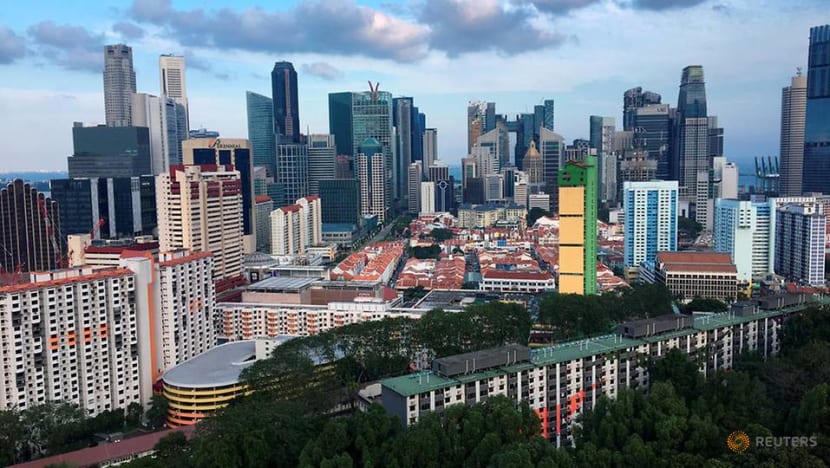
A view of the Singapore skyline. (File photo: Reuters)
SINGAPORE: To say that the global trade landscape has changed over the last few years would be a gross understatement.
At the founding of the World Trade Organization (WTO) in 1995, one would not have guessed, for example, that its appeal body for trade disputes would today be facing what some are calling an “existential threat”.
When China joined the same organisation in 2001 - after about years of hard negotiations– one might not have expected that the US and China would, in 2019, be locked in a bitter battle of tariffs and other trade restrictions while the WTO - an organisation established to deal with tariffs and handle trade disputes between members - looks on.
READ: The end of the WTO? Why China dropped a dispute against the US, EU, a commentary
Another major development has been Britain’s decision to exit the European Union, which is already having major implications on trade relations.
NOT SO NEW
Yet, some of the present causes of economic upheaval are arguably not altogether novel.
In the last century, actions to protect domestic industries through high tariffs, tariff disputes between countries, and significant non-tariff trade barriers (such as quotas and bans) have been imposed by various countries from time to time.
Also not new are changes to trade relations due to new economic arrangements between countries (for example, in the formation of the EU, and other regional economic alliances) and the imposition of country-specific trade restrictions (such as those imposed by the US against Cuba).
What is significant at the present time, however, is the confluence of factors contributing to global trade turbulence and uncertainty, making it a particularly potent brew.
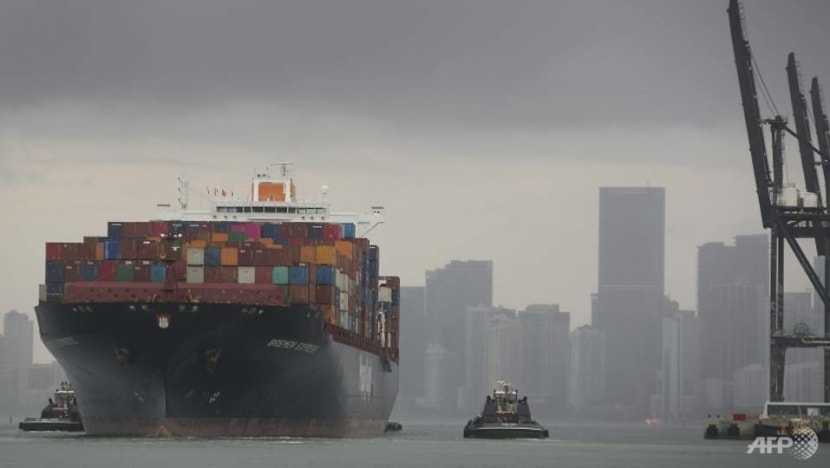
These factors include the broad use of tariffs between two major economies – the US and China - pending a lasting resolution of economic, technology and other tensions, the reliance on national security arguments for trade restrictions, Brexit ambiguities and its trade complications, and, most recently, potential disagreements on taxes to be imposed on digital services suppliers who have no physical presence in the countries of taxation.
READ: Brexit has sparked a crisis of identity and what it means to be British, a commentary
Against this already tense background, technological change continues to disrupt business activities at a rapid pace.
Certainly, Singapore businesses will not be altogether spared from the effects of these vicissitudes.
With Singapore’s economic growth slowing to 0.1 per cent in the last quarter, and manufacturing hit by the trade impasse between the US and China, businesses must brace themselves for stronger headwinds.
LISTEN: The Pulse: A rougher ride ahead? The outlook for the Singapore economy
MAJOR CONCERNS AND POSSIBLE COURSES OF ACTION
While the tariffs introduced in the last two years contributing to the so-called trade war have been troubling for many businesses, one silver lining is that tariffs are transparent when compared to non-tariff actions, which can be much more opaque and harder to challenge and deal with.
Announcements of tariffs, though unwelcome, provide businesses - such as those with affected supply chains – with measurable changes in costs.

For many businesses, these tariffs and other trade restrictions may lead to the reshuffling of manufacturing bases and supply chain parties.
For affected states, the key would be to stay competitive, to continue to attract foreign direct investments, and to carry on forging clear and fair global rules.
NEW OPPORTUNITIES
While business costs are one challenge, Singapore has a very strong headstart by many measures to weather the trade tensions and should use this standing to seize new opportunities.
READ: Singapore not expecting a full-year recession at this point, says DPM Heng Swee Keat
In terms of competitiveness, earlier this year, a Swiss-based think-tank IMD World Competitiveness study pronounced Singapore as the most competitive of 63 economies.
In investments, according to a 2018 World Investment report, Singapore managed to improve its standing from 8th to 6th position in the list of top ten foreign direct investment (FDI) host countries, attracting almost US$35 billion.
At the firm level, businesses which presently rely on factories in only one country need to consider diversifying their production bases. Those which do not currently have alternative supply chain partners may need to have broader networks of alternatives and flexibility in contracts.
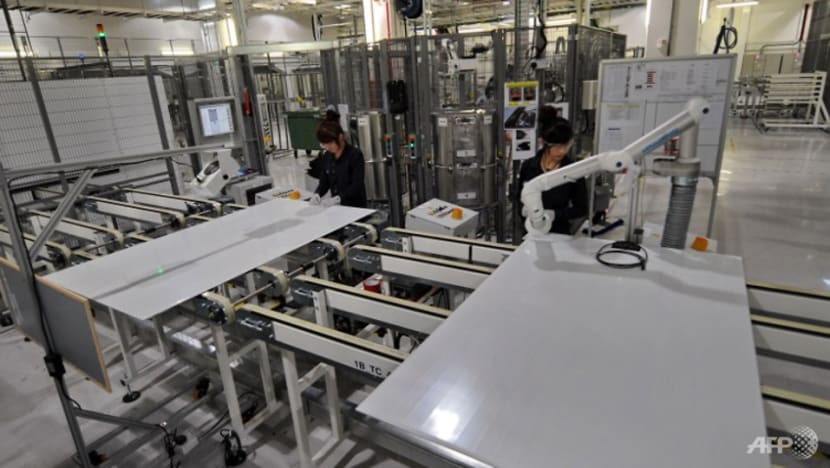
Second, there are opportunities for businesses, big and small, to explore new markets through ongoing initiatives, such as the ASEAN Economic Community’s activities which offer trade and e-commerce opportunities, China’s Belt and Road Initiative (and its Greater Bay Area plan), and potential trade and investment opportunities under the US’ Indo-Pacific Strategy.
Such initiatives include connectivity objectives which will introduce infrastructure projects in the region, which Singapore businesses can explore, and adjust if necessary, to participate in.
Examples of such participation may be the provision of services in finance (especially green finance), insurance, security, transport, logistics, construction, engineering and technology solutions, and other professional services.
Even a bilateral initiative like the Chongqing Connectivity Initiative has already seen about 240 Singapore companies getting involved.
Manufacturing businesses impacted by the trade war - whether producers of electronic goods, or engineering or security equipment, can also proactively explore how they may participate, particularly where smart city infrastructure is being proposed.
For instance, projects under the ASEAN Smart Cities Network will require the construction of physical, digital and social structures in various cities, such as buildings, info-communications systems, lighting, transport systems and facilities for waste and water management, just to name a few examples.
READ: Vietnam emerges a key winner from the US-China trade war, a commentary
Third, markets which hitherto may have been unexplored by Singapore businesses, but which may now be more accessible and attractive thanks to new free trade agreements - such as the EU-Singapore FTA - should be carefully explored, whether such businesses are in manufacturing or in the provision of services.
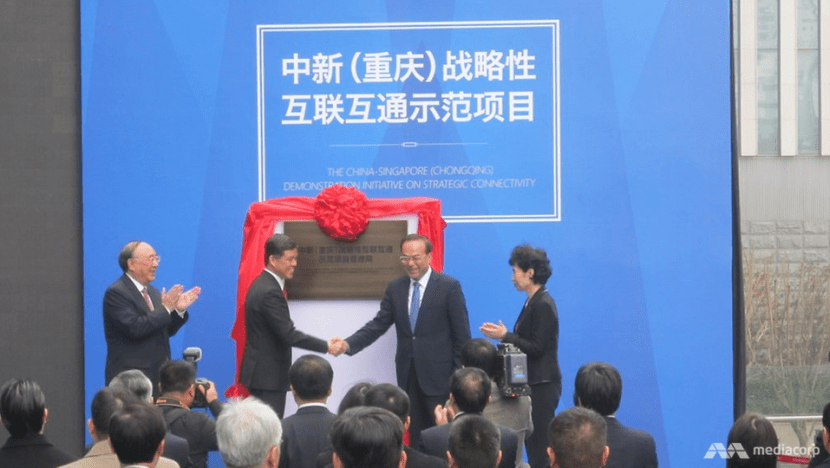
Finally, businesses which have not yet developed sustainable products or supply chains could accelerate plans to do so to cater to new customers and markets. Examples would include energy-efficient equipment and recycled construction materials.
READ: Dyson’s Singapore car plant a tale of trade opportunities in turbulent times, a commentary
GLOBAL RULE-MAKING FOR BUSINESS CERTAINTY IN DOUBT
While businesses can take such short-term measures to deal with the trade war, the more difficult issue is dealing with trade restrictions which are imposed for national security reasons, like when the US placed Huawei on an entity list (meaning trade by US firms with Huawei will now require US approval).
Such restrictions can in turn affect other businesses, such as Huawei’s supply chain partners.
WTO trade rules provide for a national security exception which can be invoked to impose trade restrictions, but this has been a little-used provision in its dispute settlement system.
READ: Here's a not-so-wild idea for the US-China trade war. Use the WTO, a commentary
Countries may argue that this is an area which is best decided by themselves, given the sensitivities and confidential information involved. There is some validity in such arguments.
A concern exists that national security arguments should not be used for protectionist (rather than true national security) reasons, leading to the argument that there is a need for some form of objective oversight.
In other words, the question is who should have the final say on whether there has been proper use of the exception.
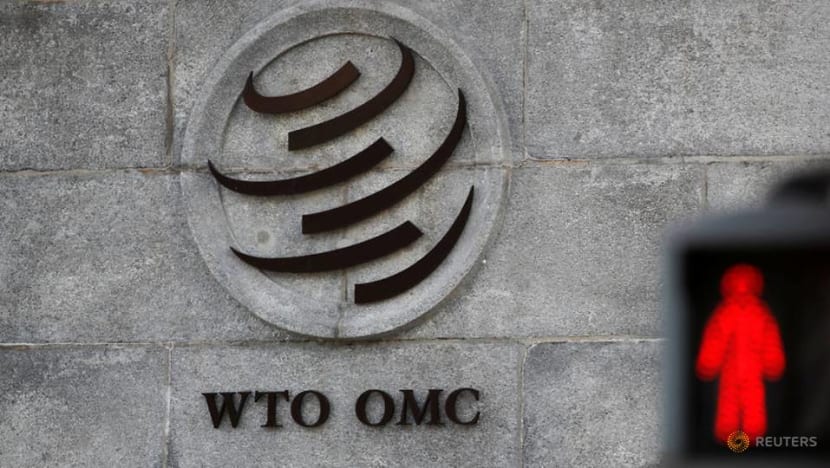
In a WTO case brought by Ukraine against Russia, a dispute panel decided in April that it could hear and decide on arguments under the national security exception.
As there has been no appeal to the WTO Appellate Body, whose own continuing viability is presently under question, it has not had an opportunity to state whether it agrees or disagrees with this decision.
While the WTO has aimed at a rules-based trade dispute system, politics have clearly not left the building.
THE NEED FOR CLEAR GLOBAL RULES
Businesses and economies are today intertwined in an unprecedented manner. Digitalisation has also led to much more cross-border trade activity, with the Internet and mobile devices increasingly connecting consumers with businesses far away from their own regions.
Such transactions require clear global rules. While FTAs provide some degree of regulation between partner countries, this is still relatively piecemeal compared with global rules which are agreed to by almost all trading nations.
Singapore’s continuing efforts to negotiate such rules – such as in the area of e-commerce - are therefore important, as having to navigate fragmented or piecemeal rules adds to business costs.
In the meantime, Singapore businesses would do well to be familiar with what new doors FTAs and other initiatives might open for them, while dealing with the current trade war and other economic headwinds
Locknie Hsu is Professor at the Singapore Management University’s School of Law.












